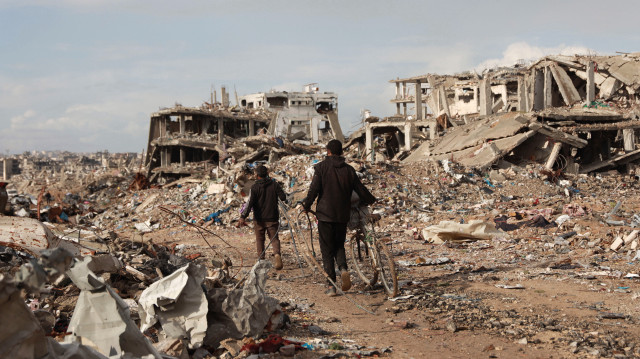
Jordan is raising alarms over U.S. President Donald Trump’s proposal to relocate Palestinians from Gaza to the kingdom, warning it could destabilize the Middle East, undermine its peace treaty with Israel, and pose an existential threat to the country.
King Abdullah plans to convey these concerns directly to Trump during a high-stakes meeting in Washington on February 11, as part of a broader diplomatic effort to rally opposition to the plan. According to three senior Jordanian officials, the kingdom is reaching out to regional allies—including Saudi Arabia, the UAE, and Qatar—to build a united front against any forced displacement.
“This is an identity issue, not just a security or economic matter,” said Marwan Muasher, Jordan’s former foreign minister, emphasizing deep-rooted opposition within the country.
Fears of a Wider Displacement
Jordan, home to a large Palestinian population, is particularly wary of Trump’s suggestion to resettle up to 2 million Gazans, fearing it could set the stage for the expulsion of another 3 million Palestinians from the West Bank. Officials argue this would align with longstanding right-wing Israeli narratives that Jordan should serve as an alternative Palestinian homeland—a concept the kingdom vehemently rejects.
Jordan’s concerns are amplified by growing instability along its border with the Israeli-occupied West Bank, where expanding Jewish settlements are further dimming prospects for Palestinian statehood.
Jordan Prepares for Worst-Case Scenarios
Jordan is exploring contingency measures, including reconsidering its 1994 peace treaty with Israel and declaring a state of emergency, should Trump’s plan gain traction. “We hope we won’t see thousands of Palestinians streaming across the border, but we are prepared,” a Jordanian official said.
King Abdullah has reiterated Jordan’s firm stance against any forced displacement or annexation efforts. Meanwhile, Trump has doubled down on his vision, suggesting that after relocating Gazans, the U.S. could turn the strip into a “Riviera of the Middle East.” The White House has since clarified that any resettlement would be “temporary” during the rebuilding process.
U.S. Aid Leverage and Jordan’s Response
Trump has hinted at leveraging U.S. economic aid—Jordan receives approximately $1.45 billion annually—to pressure Amman into compliance. However, Jordanian officials insist financial incentives or threats will not sway their position, given the fundamental risks involved.
To counter potential aid cuts, King Abdullah is strengthening ties with European allies, securing a €3 billion ($3.1 billion) partnership with the EU. Meanwhile, Jordan has also relaxed restrictions on the opposition Muslim Brotherhood, allowing demonstrations where pro-Hamas slogans have surfaced—a move seen as a signal to Washington.
A Diplomatic Showdown
As he prepares for talks in Washington, King Abdullah faces the challenge of standing firm against Trump while maintaining Jordan’s strategic alliance with the U.S. “This plan is not just unworkable—it’s a direct threat to Jordan’s survival,” said analyst Lamis Andoni.
With growing regional tensions and uncertainty over U.S. policy, Jordan is determined to push back against any forced resettlement, insisting that the Palestinian issue must be resolved within Gaza and the West Bank—not at Jordan’s expense.
